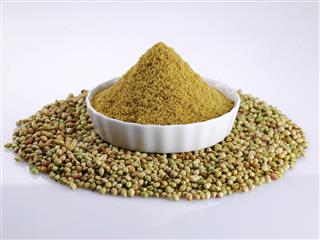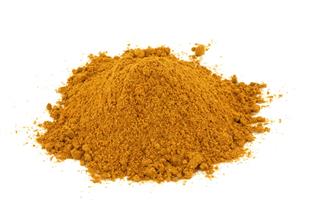
Many women experience menorrhagia or heavy bleeding during period. Though in some cases, the flow may reduce as they progress further into the period, sometimes it may not. Read this article to know more about the causes and treatment for this condition.
Experiencing a heavy flow during your period once in a while can be considered normal. However, if this continues on a regular basis, then it could be a matter of concern. If the flow during your period has been heavy for quite some time now, do not take it lightly. Your body may be trying to tell you something. This HerHaleness article will help you identify this gynecological problem better and find some possible solutions for it.
Why it Happens
- Hormones: Generally, a woman nearing menopause or a young girl may experience heavy bleeding at least once within the first year of getting her period. This is a normal situation resulting from hormonal changes, but should be monitored closely because if either loses too much blood, it may lead to other complications.
- Uterine Fibroids: Some women may develop uterine fibroids as a result of the excessive or quick production of estrogen in the body. It is important to note that a fibroid tumor is benign and non cancerous. . However, it can lead to bleeding more than usual which causes much discomfort. Since it is caused due to estrogen, the tumor develops quickly during menstruation and pregnancy when estrogen is produced more.
- Lochia: It is natural to experience excess bleeding after pregnancy. This bleeding after a normal delivery or a c-section is termed as Lochia. It is the body’s way of discharging any excess fluids like mucus or placental tissue that remains inside you before childbirth. It begins almost immediately after delivery and lasts for about 6 weeks.
- Pelvic Inflammatory Disease (PID): PID is caused due to an infection in the uterine lining, the ovaries or the fallopian tubes. The causes of PID can be unprotected sex, surgical procedures like abortion or cesarean delivery etc. This is a very serious problem and many sexually active teens are falling prey to PID without realizing its dangers.
- Polyps: Uterine polyps are small in growths on the lining of the uterus. Polyps are generally caused by hormonal changes in a woman’s body. Women in their late 20s to mid 40s have a greater tendency of experiencing polyps in the uterus, which is also a cause of heavy blood flow during one’s period.
- Medications: Some women may experience heavy flow while on birth control pills or medication for some other ailment. Other medications for inflammations may also cause heavy and continuous flow for quite some time. Hence, women must take care of what medications they’re taking and take them only if prescribed.
Most Common Symptoms Experienced
The amount of blood flow experienced even during a heavy period varies from woman to woman. So, it is necessary to know what exactly are the symptoms of heavy flow so that you can identify if you indeed are bleeding in excess.
- Generally, a discharge of more than 80 ml of blood from the body during a single period (that is the 5 day period) is considered heavy.
- Another symptom is when you experience a period that lasts more than the usual duration of a period. For instance, a normal period lasts for 4 to 5 days. If you are bleeding for a continuous period of more than 10 days, then it is advisable to consult a doctor.
- If you feel the need to keep changing your tampon or your sanitary napkin almost an hourly rate, then it is a sign that you’re bleeding more than normal. Also, make sure that you change your protection at least twice a day to prevent any possible infection.
- Some women also happen to discharge blood clots along with blood during their period.
- Are your clothes getting stained more often during your period lately? It could be after a night’s sleep or after a long day of sitting in one position. Sometimes, you may not realize it, but this too could be a sign
- Heavy bleeding, in some cases, is also accompanied by severe abdominal cramps. In such a situation, you may also begin to feel dizzy and weak. This happens due to the excess blood loss from your body.
If you experience all or even a combination of a couple of these symptoms, make sure you visit a medical professional who can diagnose you with the appropriate condition and provide expert advice.
How to Cope with It
Prescription Drugs
- Many doctors prescribe anti-inflammatory drugs to ease the cramps caused due to excessive bleeding.
- Other than that, oral contraceptives have also been known to reduce the heavy flow.
- Oral doses of the hormone progesterone is also one of the good treatments.
Home Remedies
- Sometimes, the excess loss of blood can lead to anemia. As a result, you begin to feel faint and tired even with slight exertion. In such cases, you can consume foods that are rich in iron and vitamins. This can help you regain the lost energy and also to increase the level of hemoglobin in your blood. You’ll feel better and stronger.
- Another way to control the flow is to maintain the appropriate position while sleeping. Or simply while laying down. What you can do is lay down with a medium weight cushion on your abdomen. Along with this, place your feet at an elevated position on 2-3 cushions or pillows.
- There is also an oral remedy that you can try out. Mix a tsp of coriander in 2 cups of water and boil it till it is reduced to half the quantity. Add sugar to taste. Have this mixture thrice a day.
If you are bleeding heavily during your period, and you do not get any respite with any of these or other treatments, consult a doctor immediately. Excess blood loss can lead to more complicated health issues, especially for women. So avoid any such circumstances and take the necessary precautions as per your doctor’s guidance.
Disclaimer: This HerHaleness article is for informative purposes only, and should not be used as a replacement for expert medical advice.



